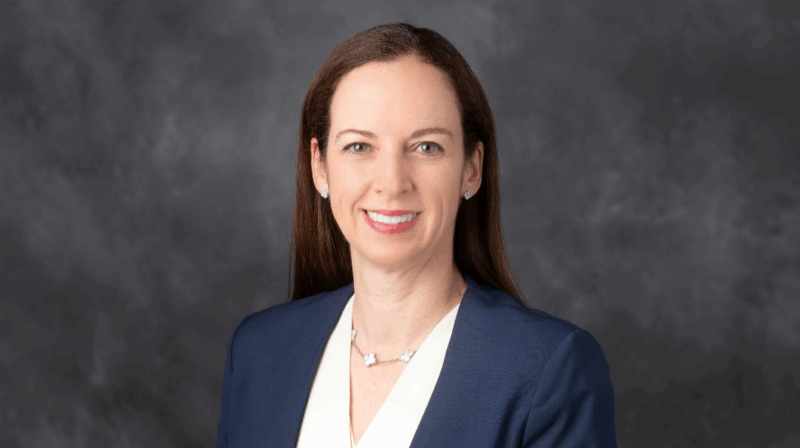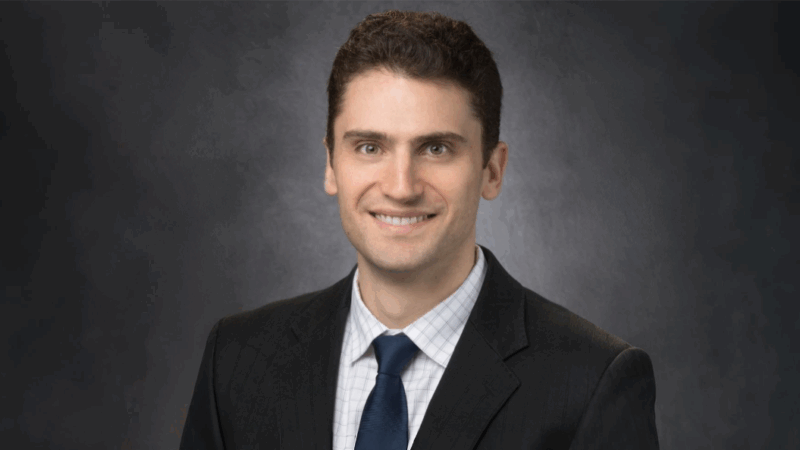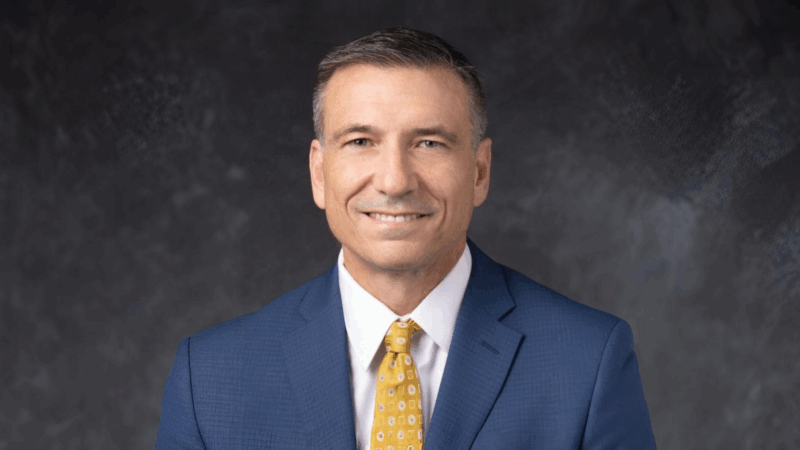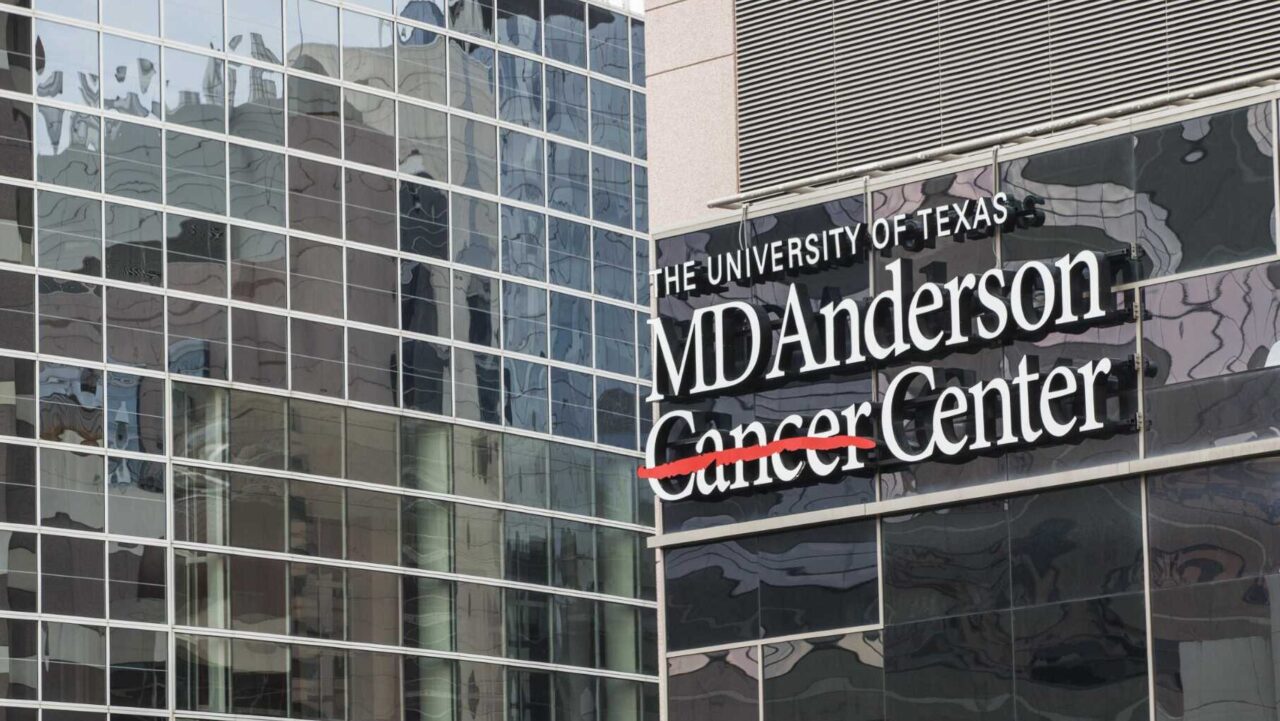Experts from The University of Texas MD Anderson Cancer Center presented research at the 2025 World Conference on Lung Cancer (WCLC).
The oral presentations featured below highlight innovative approaches that have the potential to transform treatment for patients with advanced and hard-to-treat lung cancers.
Innovative ADC therapy shows promise in hard-to-treat small cell lung cancer
Small cell lung cancer (SCLC) remains one of the most aggressive and difficult-to-treat forms of lung cancer, with few effective therapies for patients who relapse. The SEZ6 protein is highly expressed in SCLC and is a promising therapeutic target.
In a Phase I study, researchers led by Lauren Byers, M.D., evaluated the safety and efficacy of ABBV-706 – an antibody-drug conjugate (ADC) that targets SEZ6 and delivers a chemotherapy “payload” to the cancer cells –in patients with relapsed SCLC. The researchers enrolled 80 patients with SCLC who received two different doses of ABBV-706. The lower dose resulted in longer-lasting benefits and fewer serious side effects compared to the higher dose.
These findings determined the dose used in the Phase II trial and suggest ABBV-706 could offer a new targeted option for patients with limited treatment choices. Byers presented the data on September 7, used in the Phase II trial, and suggested ABBV-706 could offer a new targeted option for patients with limited treatment choices. Byers presented the data on September 7.

Combination therapy achieves durable response in advanced lung cancer patients
KRAS G12C mutations are among the most common drivers of non-small cell lung cancer (NSCLC), yet first-line targeted therapy options remain limited. Olomorasib, a selective KRAS G12C inhibitor, has shown promising results in combination with chemoimmunotherapy.
In an integrated analysis from the Phase I LOXO-RAS-20001 and Phase III SUNRAY-01 trials, Marcelo V. Negrao, M.D., and colleagues examined the safety and preliminary efficacy of olomorasib (50 or 100 mg twice daily) with chemoimmunotherapy in 77 patients with advanced KRAS G12C-mutant NSCLC. The overall response rate was 61% and the disease control rate was 90% with the combination.
Responses occurred early across all PD-L1 expression levels, and the regimen demonstrated a manageable safety profile. Based on these results, the 100 mg (twice daily) dose of olomorasib is being evaluated in the ongoing Phase III SUNRAY-01 trial. These findings support olomorasib as a potential first-line treatment for patients with KRAS G12C-mutant NSCLC. Negrao presented the data on September 8.

Brigatinib with local therapy can potentially improve outcomes for advanced NSCLC
Almost all patients with ALK-rearranged non-small cell lung cancer (NSCLC) end up with an incomplete response to targeted therapy with tyrosine kinase inhibitors (TKIs), leading to residual disease which may result in acquired resistance to treatment.
Adding local consolidative therapy (LCT), such as radiation or surgery, after initial treatment with ALK-TKIs can potentially eliminate residual disease, delaying the emergence of drug resistance and therefore improving clinical outcomes. In the BRIGHTSTAR trial led by Yasir Elamin, M.D., researchers explored the safety and efficacy of brigatinib, an oral ALK-TKI, along with LCT in 34 patients with advanced ALK-rearranged NSCLC.
Across all patients, 32 patients (94%) completed the planned LCT, with a median progression-free survival (PFS) of 66 months and a five-year PFS rate of 51. Notably, the researchers identified new biomarkers of treatment benefit that could help stratify patients into high- and low-risk groups. These findings show that brigatinib with LCT is safe and improves outcomes in this patient population. Elamin presented the findings on September 8.

Bispecific antibody dose shows promising potential for extensive-stage SCLC
Pumitamig is a novel bispecific antibody targeting both the PD-L1 checkpoint and VEGF, a driver of angiogenesis, being studied in patients with extensive-stage small cell lung cancer (ES-SCLC). Pumitamig plus chemotherapy was shown to improve outcomes for Chinese patients with SCLC, leading John Heymach, M.D., Ph.D., and colleagues to examine its optimal dose in a global Phase II trial of patients with treatment-naïve ES-SCLC.
In 43 patients enrolled in cohort 1 – receiving pumitamig plus etoposide and carboplatin chemotherapy for four cycles, followed by pumitamig maintenance – 22 patients received a lower dose of 20 mg/kg and 21 received a higher dose of 30 mg/kg. Among 38 evaluable patients, the overall response rate (ORR) was 85% and 66.7% with the low and high doses, respectively, with 89.5% of patients overall achieving early tumor shrinkage.
Six patients (14%) discontinued pumitamig due to adverse events. These are the first results highlighting the therapeutic potential of a bispecific antibody targeting both checkpoint inhibition and angiogenesis in a global ES-SCLC patient population, supporting further development of pumitamig, which is currently being evaluated in Phase III trials. Heymach presented the results on September 8.

About MD Anderson
The University of Texas MD Anderson Cancer Center in Houston ranks as one of the world’s most respected centers focused on cancer patient care, research, education, and prevention. The institution’s sole mission is to end cancer for patients and their families around the world, and, in 1971, it became one of the nation’s first National Cancer Institute (NCI)-designated comprehensive cancer centers. MD Anderson is No. 1 for cancer in U.S. News & World Report’s “Best Hospitals” rankings and has been named one of the nation’s top two hospitals for cancer since the rankings began in 1990. MD Anderson receives a cancer center support grant from the NCI of the National Institutes of Health (P30 CA016672).
You can find more posts featuring MD Anderson Cancer Center on OncoDaily.


